Stop Loving Black Autistic Women in Fragments
What Intersectional Love Demands from Those Who Want to Be Close to Us
You Want Me to Divide Myself
“They say they love us. But what they often mean is: they love parts of us…”
They say they love us. But what they often mean is: they love parts of us. The parts that don’t contradict. The parts that don’t ask for context. The parts that don’t sound like a mirror.
In my book Främling i vita rum, I wrote about a moment that still sits with me. I was invited to speak on a feminist panel in Sweden—a space supposedly committed to women’s rights. But when I arrived, I was told to “only talk about gender,” and not mention racism. I asked them:
“So you want me to bring my vagina in, but take a knife to leave my skin out? How do you expect me to divide myself?”
They couldn’t answer—because the answer would have required seeing me as whole. And people like me are rarely allowed to be whole. Not on panels. Not in movements. Not in families. Not in relationships. Not in workplaces. Not even in community spaces that claim to understand us.
Because this isn’t just about institutions. It’s about what intersectionality makes visible in our most intimate spaces. It’s when partners say they love us but flinch when we name harm, at our silence, our clarity, or our sensory needs. When friends praise our strength, but vanish the moment we name what it costs. When setting a boundary suddenly makes us “difficult.” When collaborators share our writing, until it holds up a mirror.
Even within the Black diaspora, there is a deep discomfort with women who carry what cannot be simplified. Women who do not flatten themselves for acceptance. Women who live at the edge of too many truths at once.
Because I’m not just a woman. I’m a Black woman. And Black women are not metaphorical intersections. We are the intersection. Forever Intersectional. And I cannot divide myself.
I am Black. I am autistic. I am Muslim. I have been all three and more at every moment of my life whether or not the room had the language or courage to name it. And I am not alone. So many of us exist at intersections that are treated like contradictions. We are asked to simplify ourselves for the sake of proximity. We are told that to be loved, supported, or “included,” we must leave pieces of ourselves outside the door.
What It Really Means to Love Us
“Love us without demanding we shrink.”
Loving a Black autistic woman is not about aesthetic gestures or intellectual posturing. It’s not proven by public affirmations or curated captions. It’s proven in quiet rooms. In paused conversations. In what you do when her silence isn’t about you.
The world constantly demands performance from Black women—especially those who are neurodivergent. We are expected to explain ourselves, soften our tone, manage others’ reactions, and make our needs legible to those unwilling to listen. So when we are loved, it must be love that does not add to that burden. It must be love that listens at the edge of noise. Love that asks before it assumes.
When you love a Black autistic woman, you’re not loving a blank slate. You’re loving someone who has likely been misdiagnosed, gaslit, praised for masking, and punished for taking space. Her love language may be precision, quiet, space, or clarity—not because she is unfeeling, but because she has learned to survive in a world that rarely speaks her dialect.
It’s understanding her need for silence when the world is too loud. It’s not interpreting distance as rejection, or directness as aggression. It’s learning the language of her boundaries, not to cross them, but to respect them as sacred. When her thoughts flow like a river, your job isn’t to dam the current. Your job is to be present, to witness her rhythm without interrupting it.
Love isn’t asking her to change or dilute herself so you can better understand her. It’s asking whether you’re willing to learn a new way of being, one that doesn’t center your comfort, but centers her safety.
This kind of love isn’t theoretical. It’s daily. It’s attunement without surveillance. It’s care without conquest. It’s recognizing that to love her is to respect her independence and be brave enough to meet her where she is—not where it’s convenient for you.
Why Intersectionality Isn’t Optional
“Only Black women are intersectional. Not movements. Not frameworks.”
The phrase “If your feminism isn’t intersectional, it isn’t real” is often said with good intentions—but it misrepresents what intersectionality actually is. The fallacy lies in imagining that a theory or movement can absorb intersectionality like a feature add-on.
But intersectionality is not an upgrade. It’s not a patch to apply to white feminism. It’s not a lens.
It’s a condition—lived through the body, often without choice, always at cost.
Calls for “intersectional feminism” often serve to:
Avoid accountability for feminism’s exclusion of Black, disabled, queer, and poor women
Shift focus to abstract frameworks instead of centering the women who embody them
Treat Black women’s survival as theory to strengthen a movement that never protected us
When intersectionality becomes sloganized, it detaches from the Black feminist lineage that created it—a lineage rooted in survival, not theory. That includes Audre Lorde, bell hooks, Anna Julia Cooper, and the Combahee River Collective—not just Crenshaw’s legal framing, but generations of Black women naming structural erasure long before it was given institutional vocabulary.
Crenshaw gave us language for what many of us already lived.
“A Black woman doesn’t just face racism the way Black men do, or sexism the way white women do. She faces both at once.”
And for some of us, it’s more than two systems.
A Black autistic Muslim woman lives at the axis of racism, ableism, Islamophobia, and sexism simultaneously. Not metaphorically. Structurally.
And when society refuses to see the full picture, it fails to protect us.
Intersectionality is not something you “apply” to a movement. It’s what people like us survive.
We do not live in fragments. We carry every part of ourselves into every room. Our Blackness doesn’t pause when we mask. Our autism doesn’t disappear when we navigate racism. Our womanhood doesn’t shield us from erasure, it sharpens it.
Before we even speak, we’re already too much. Too direct. Too sensitive. Too quiet. Too loud. Too much to hold—and too much to dismiss.
These contradictions aren’t personal. They’re structural.
Medical systems delay our diagnoses. Schools punish our sensory needs. Workplaces interpret our clarity as insubordination. Even in intimate relationships, our need for solitude or stability is framed as dysfunction.
This is the weight we carry, not because we chose it, but because society decided which parts of us were acceptable, and which had to disappear to be loved.
So if we are to be loved, it must be love that does not ask us to shrink into comfort-sized pieces. Love must know our context. Love must learn us without simplifying us first. Because we are not one thing.
We are layered. Nonlinear. Contradictory. Sacred. Whole.
And if your feminism can’t hold that, then it’s not failing theory.
It’s failing people.
Understanding Boundaries in Black Autistic Women’s Relationships
“Respecting her boundaries is respecting her language.”
For Black autistic women, boundaries are not barriers they are communication just not the kind you’ve been taught to expect. They are clarity in a world that rarely offers us the same. But too often, our boundaries are misread through ableist and racialized filters: mistaken for coldness, hostility, selfishness, or emotional immaturity. The truth is simpler—and sharper. Boundaries are how we stay alive. They are how we preserve our energy when the world has already taken too much.
To love a Black autistic woman is to stop translating her needs through your own comfort. It’s to realize that silence is not absence. That directness is not cruelty. That needing space is not withdrawal. It’s communication—just not the kind you’ve been taught to expect.
When we say no, we are not inviting negotiation. When we fall quiet, we are not punishing you. When we step away, it’s not about making a point—it’s about saving our nervous system from collapse.
Because we are so often punished for asserting our needs, many of us have become masters at explaining ourselves to death. We over-explain, soften, hedge, mask. But love—real love—should not require an apology to make a boundary legible.
Loving us means learning to listen without translation. It means accepting that our needs might not come with emotional cushioning. That clarity is a gift, not a threat. That if we didn’t care, we wouldn’t speak at all.
Respecting a boundary isn’t about your intention. It’s about whether you can honor the limits we’ve named, especially when you don’t understand them. And if you need constant softness in order to listen, what you want is compliance—not relationship.
This is where many relationships fracture. People claim to value authenticity until it confronts their entitlement. They want the depth of our empathy but not the conditions that protect it. They want access to our insight, our presence, our care—but without the scaffolding that keeps us safe enough to offer those things freely.
So let this be clear: a boundary is not a rejection. It is an invitation to stay—with respect, not control. With curiosity, not demand.

What It Really Takes to Love a Neurodivergent Black Woman
“Loving her is a verb, a daily practice of seeing her fully.”
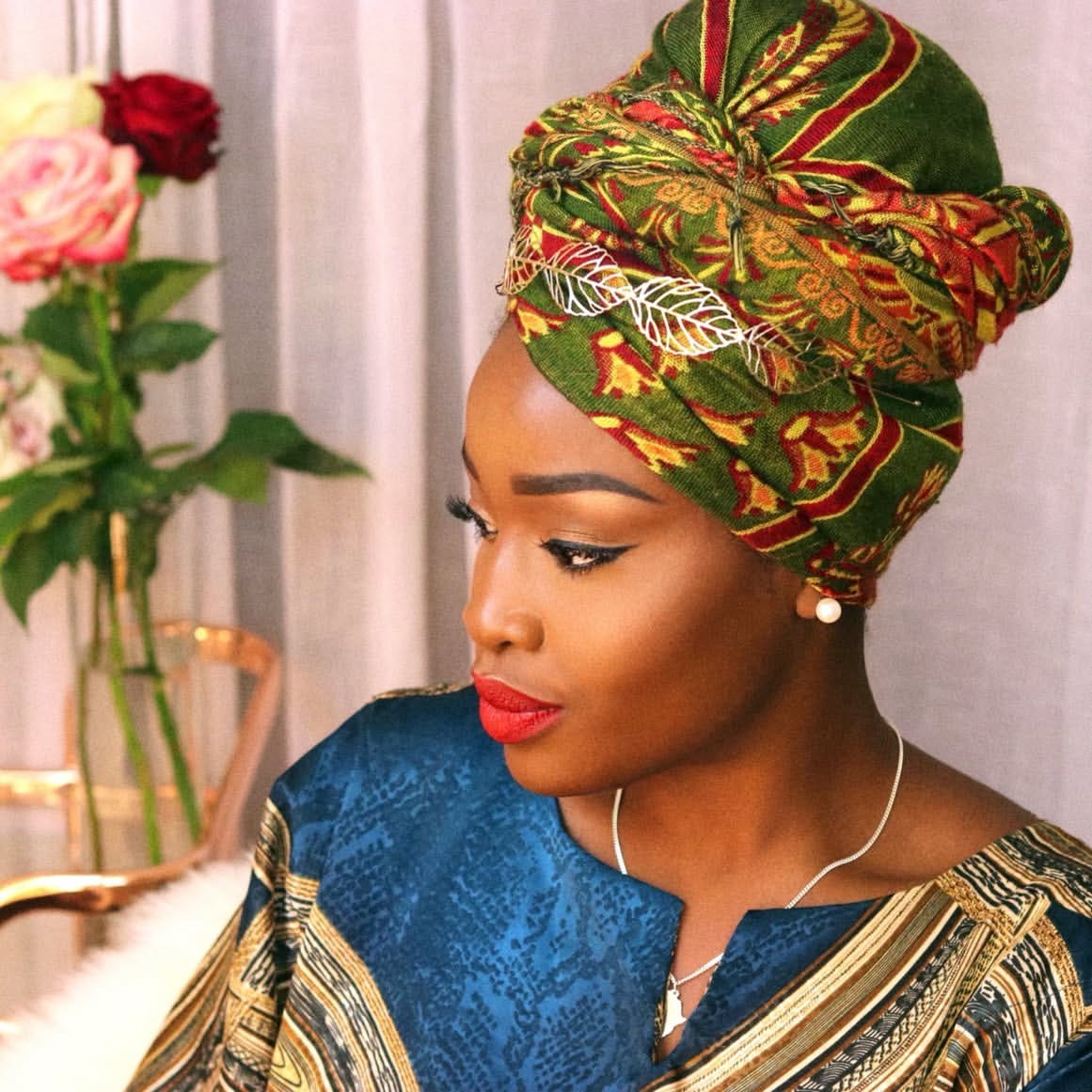
Loving a Black autistic woman requires more than admiration. It requires action. Not grand gestures or performative allyship but sustained, accountable care. A kind of love that is not performative but practiced. Not abstract but embodied.
To love her well, you must stop asking her to interpret your inconsistency as love. You must recognize that for someone who has spent her life adapting to survive, the greatest gift is someone who does not require more adaptation. Someone who does not see her clarity as cruelty. Someone who does not conflate her boundaries with rejection.
It means asking questions instead of assuming. Saying “Is this a moment to help, or to hold space?” instead of barreling through with your version of support. It means noticing when she’s masking, then creating enough safety that she doesn’t have to. It means learning her sensory thresholds, not ridiculing them. It means choosing not to be another person she has to recover from.
And perhaps most importantly—it means letting go of the idea that love gives you access. Access to her time, her thoughts, her body, her labor. Love is not a key it’s a responsibility. And if you’re not prepared to carry that with humility, you’re not loving her. You’re consuming her.
This kind of love will stretch you. It will require that you confront your own socialization—your gendered expectations, your racial bias, your ableist frameworks. You may realize how much of your desire for closeness has been shaped by control. You may notice how you equate care with comfort, or silence with agreement. You may learn, for the first time, that safety is not universal—it’s personal.
But if you can sit with that discomfort—if you can love her without needing to be right, centered, or needed—then something rare becomes possible. A relationship where she doesn’t have to mute herself to be held. A love that doesn’t require her disappearance as a condition for staying.
Because loving her well isn’t about fixing her. It’s about unlearning everything that told you she needed to be fixed in the first place.
Creating Emotional Safety for Black Autistic Women in Love
“Loving her means standing in her light, not dimming it.”
For Black autistic women, love has too often meant performance. Quieting our needs. Softening our truths. Offering our gifts at the expense of our well-being. So when we say we want safety, we’re not talking about coddling—we’re talking about survival.
Home is not a person who watches us collapse and calls it resilience. Home is someone who sees our regulation as a priority. Who knows that overstimulation, shutdowns, and silence aren’t signs of failure—but of presence. That we are still here, even when we retreat. That we are still loving, even when we fall quiet.
To be loved well is to be loved without being managed. It’s to be held in our wholeness—not our usefulness. It’s to be seen even in moments where we are not performing clarity for someone else’s comfort.
A Black autistic woman should never have to choose between being loved and being herself. She should not have to downplay her intuition, her knowledge, her fire, or her fatigue to be deemed “worthy.” She should not have to shrink her joy or her pain to protect someone else’s fragility.
She is not someone to be decoded. She is not a puzzle. She is not a project. She is a person. And if your love cannot hold her brilliance without trying to dim it—then you are not offering love. You are offering conditions.
So if you want to love her—love her in her fullness. In her sensory overwhelm and her stillness. In her eloquence and in her pauses. In her knowing and in her need to ask again. Stand beside her without needing to center yourself. Choose her without trying to change her. And protect her as fiercely as she protects herself—because the world rarely does.
Because love, real love, is not what you say. It’s what you make possible.
Stop Loving Black Autistic Women in Fragments
“You cannot love us in pieces and call it care.”
Too often, Black women are loved in fragments. Our intellect is praised while our emotions are pathologized. Our aesthetics are admired while our boundaries are dismissed. Our labor is consumed while our humanity is ignored. And if we are also autistic, those fragments multiply until what’s left isn’t recognition, but reduction.
Even online, the pattern holds. People will quote our clarity while skipping over our pain. Share our essays without asking if we’re okay. They’ll praise the quote, but not the person who lived it. They’ll reshare our most articulate sentences, then disappear when we speak plainly about harm.
This is how even “love” can reproduce harm: when it cherry-picks what is palatable, strategic, or convenient. When it praises the quote, but not the person who lived it. When it honors the performance, but not the process.
Black autistic women don’t live in fragments. We are not parts to be chosen based on your comfort. We are not interchangeable. We are whole—complicated, consistent, contradictory, and still worthy. If you only love us when we’re quiet, composed, or educational, you do not love us at all.
So if you are reading this and see yourself—ask:
Are you loving the person, or the performance? Are you in relationship with our wholeness, or your idea of who we should be?
We don’t need curated admiration. We need accountable presence.
We don’t need soft reposts. We need safe relationships.
We don’t need to be decoded. We need to be believed.
If you cannot love all of her, then step back. Because someone who can and will is watching how you treat her now.
To love a Black autistic woman is to learn a new kind of language. One that values presence over performance. Ask yourself: are you here to understand, or to consume?
If This Resonates
You’ll find more of my essays on breaking intergenerational cycles, Neurodivergence and holding boundaries and reclaiming voice.
Matriarchy vs. Gynarchy: Why Replacing Men Isn’t Liberation | Lovette Jallow
Who is Lovette Jallow?
Lovette Jallow is one of Scandinavia’s most influential voices on systemic racism, intersectional justice, and human rights. A nine-time award-winning author, keynote speaker, lecturer, and humanitarian, she specializes in neurodiversity, workplace inclusion, and structural policy reform.
As one of the few Black, queer, autistic, ADHD, and Muslim women working at the intersection of human rights, systemic accountability, and corporate transformation, Lovette brings an unmatched perspective rooted in both lived experience and professional expertise. Her work bridges the gap between theory, research, and action, helping organizations move beyond performative diversity efforts toward sustainable, structural change.
She has worked across Sweden, The Gambia, Libya, and Lebanon, tackling institutional racism, legal discrimination, and refugee protection. Her expertise has been sought by global publications like The New York Times, on high-profile legal cases, and by international humanitarian organizations, where she has provided critical insights on racial justice, policy reform, and equity-driven leadership.
Follow Lovette Jallow – DEIB Strategist, Keynote Speaker & Humanitarian:
Website: lovettejallow.com
LinkedIn: linkedin.com/in/lovettejallow
Instagram: instagram.com/lovettejallow
YouTube: youtube.com/@jallowlovette
Twitter/X: twitter.com/lovettejallow


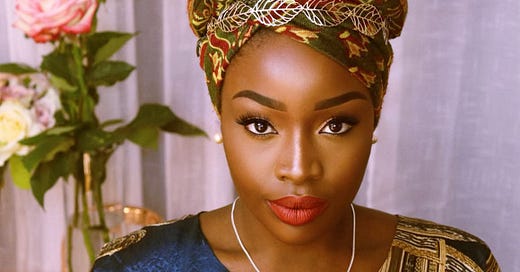




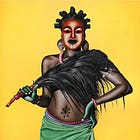


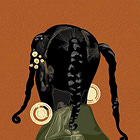

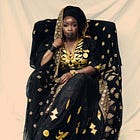


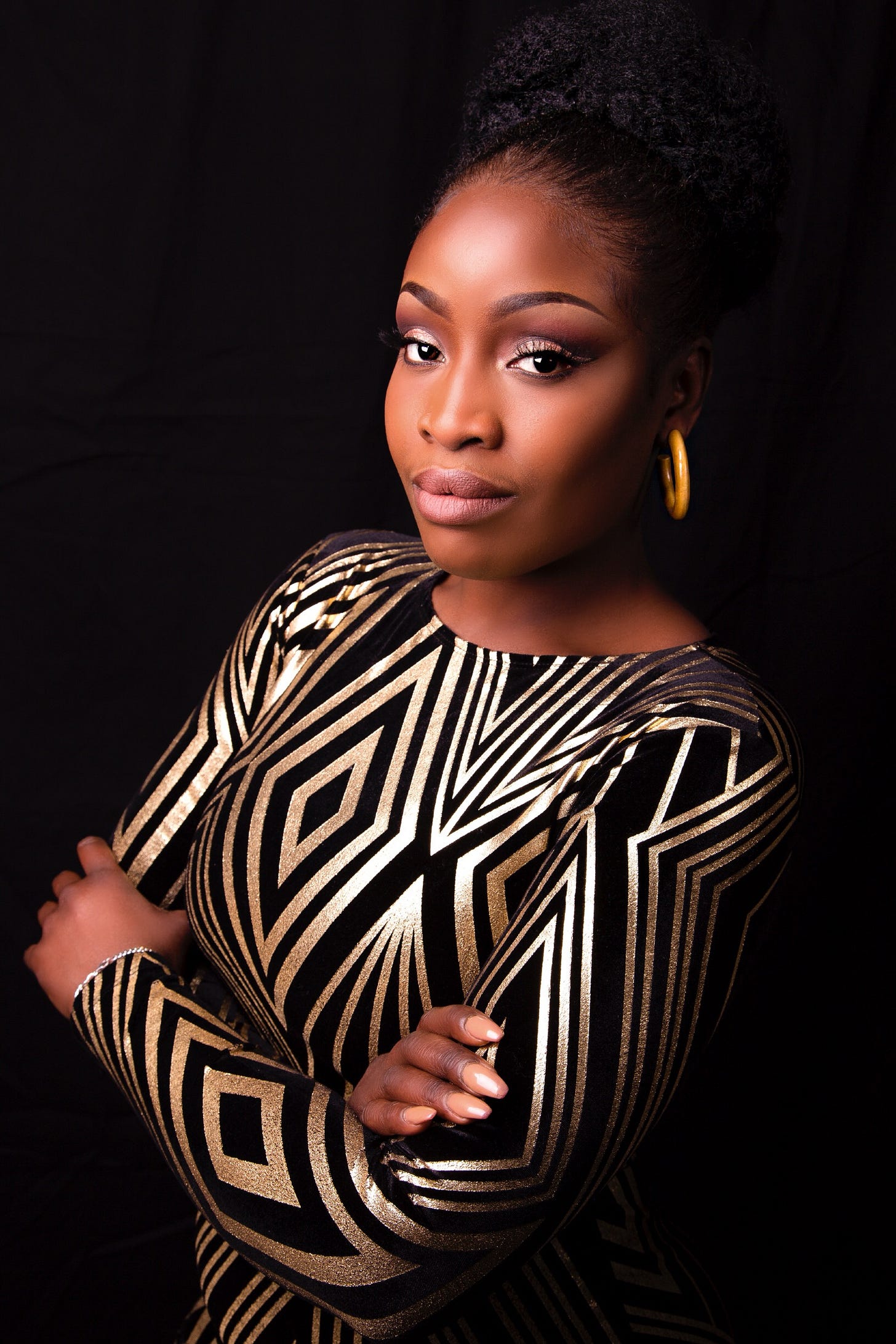
“Respecting a boundary isn’t about your intention. It’s about whether you can honor the limits we’ve named, especially when you don’t understand them. And if you need constant softness in order to listen, what you want is compliance—not relationship.
This is where many relationships fracture. People claim to value authenticity until it confronts their entitlement. They want the depth of our empathy but not the conditions that protect it. They want access to our insight, our presence, our care—but without the scaffolding that keeps us safe enough to offer those things freely.”
I love this so much. No more chopping ourselves up into pieces for people to pick and choose from. Love and support the whole person. That’s true relationship.
Lovette 😭😭😭💛
I am utterly devastated, floored and gutted by this. Every sentence of this was like a violent rearrangement of everything in me that has felt chronically mishandled and misunderstood but I excused it with, "maybe we are the problem and we need to change, need to adapt better to the way the world functions"
I'll leave it right here.
And say, thank you! Thank you for the depths of yourself that you had to go into to bring out this textual piece of medicine. May all the love and care that the world withholds find you amongst people and spaces that see you in your fullness.
All my love 💛🌻